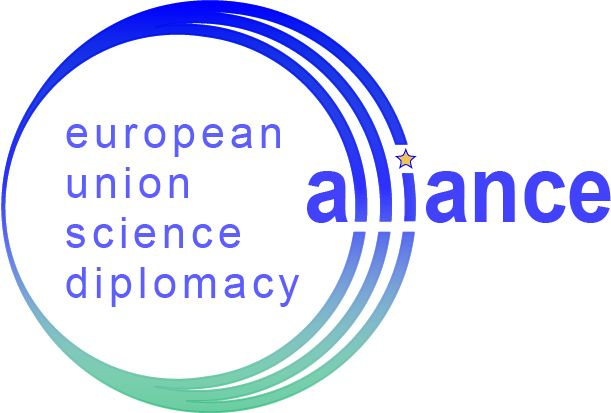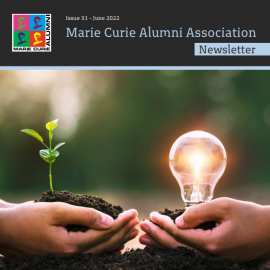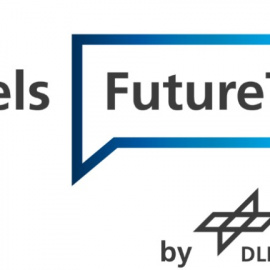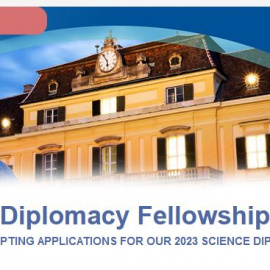Urban Diplomacy identifies municipalities as key players in the formulation and implementation of foreign policy. Similar to Science Diplomacy, urban diplomacy provides an emerging opportunity to foster international cooperation. In times of turmoil, it can help to keep communications channels open and create new spaces for discussion and cooperation. Urban diplomacy is also a crucial component in solving global challenges.
For the 4th edition of the Brussels: FutureTalks on 8 November 2022, the DLR Projektträger joined forces with SciTech DiploHub Barcelona, building on their successful cooperation under the EU Science Diplomacy Alliance and gathered 30 top-notch practitioners from cities, networks, and UN bodies, as well as experts in technology, innovation, migration and climate to discuss new ventures in urban diplomacy.
What is the role of cities in answering global challenges? What innovative tools and instruments does urban diplomacy offer for shaping foreign relations, especially in times of turmoil? How can national governments and the EU strategically align urban diplomacy with their foreign agenda and vice versa – without clipping the independence of municipalities?
What does urban diplomacy mean in the context of the EU Cities Mission? These were some of the questions that guided the discussion.
An interactive ice-breaker highlighted the various aspects that participants associated with urban diplomacy:
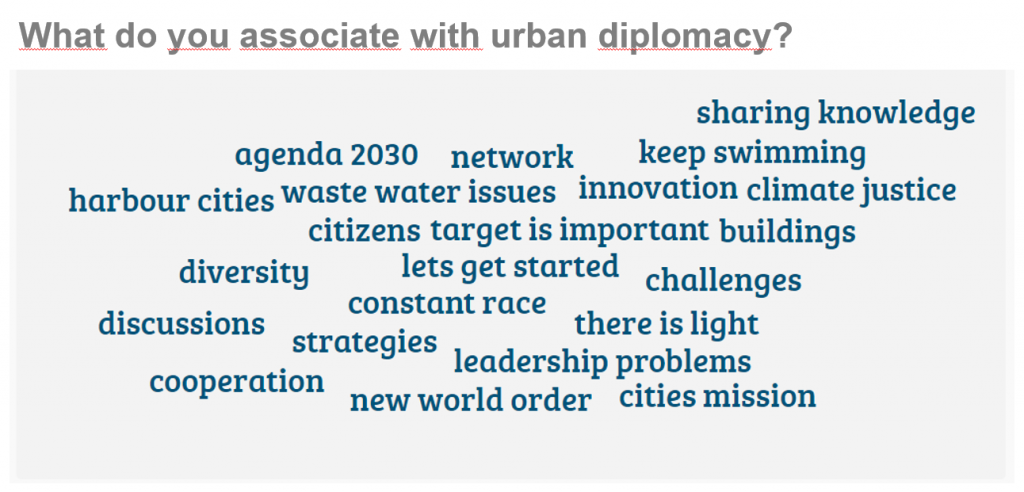
In her keynote, Annika Lenz, Program Management Officer, UN-HABITAT Brussels provided an overview of the global perspective, emphasizing the role of cities for achieving the United Nations Sustainable Development Goals, the Paris Agreement and in the implementation of the New Urban Agenda. ”Urban Diplomacy can constitute a new tool to balance or go alongside national policies in a global context of increased complexity and diversity of actors” , she stressed. However, according to Annika Lenz, various challenges remain, including the lack of capacities in cities to engage globally, a landscape of city networks that became siloed and fragmented and a missing seat at the negotiation table where global agendas are being shaped. She highlighted the need to find avenues for greater integration between cities and the multilateral system, by recognizing cities as partners, and for the cities, by building a representative city voice.
PANEL 1: BEST PRACTICES ON URBAN DIPLOMACY
Anne Andersson, Managing Director of the Stockholm Region EU Office, stressed that mayors signing official partnership agreements is only one part of urban diplomacy and it becomes even more important to foster a shift in the culture and change daily routines of city administrators. Looking at the ongoing climate negotiations at COP27, she pointed out that “elected as one of the EU’s climate neutral cities, through urban diplomacy, Stockholm can pave the way for other cities to pursue their own green and sustainable transition”.
Patrick Wegener, Director of the European Office of Local Authorities of Baden-Württemberg, emphasised: “Local authorities must become active themselves in the 21st century, because the challenges of our time become concrete on the ground. The emergence of urban diplomacy also benefits new forms of diplomacy, by allowing non-state actors like municipalities, cities and counties from Baden-Württemberg to get involved in European policymaking”
Alexis Roig, Chief Executive Officer of the SciTechDiploHub presented insights from Barcelona, the world’s first city to implement a science diplomacy strategy. ”Urban diplomacy must engage with the global agenda, but calibrate its actions to the complexity of local realities: institutional landscape, socio-cultural dynamics, political structures & economic specificities”, he stressed and further pointed out that ”Internationalization strategies that align local, regional and national governments are more proactive at dealing with current challenges and bringing unparalleled benefits to global societies.”
PANEL 2: Daring More Urban Diplomacy: Incentives, Methods and Tools
Bringing in the perspective of the European Commission, Wiebke Pankauke, Deputy HoU Future Urban and Mobility Systems at DG RTD gave an overview of the international dimension of the EU Mission on Climate-Neutral and Smart Cities, in which 10 cities from the HE associated countries are already involved. She further pointed to the role of the new CapaCITIES project, that will help building capacities for the Cities Mission. ”In order to become climate-neutral, smart cities must engage in urban diplomacy, a proactive way to learn from each other by sharing best practices, which is essential to achieve sustainability“, she highlighted.
In her speech, Dorthe Nielsen, Executive Director at Eurocities called to use the collective power of networks and international fora like U7 to drive urban diplomacy forward and to offer solidarity and hope in times of turmoil: ”Across Europe and across the world, city networks have proven to be effective alliances in facing 21st-century crises, as we have seen with the wave of solidarity resulting from the war in Ukraine.”
”Confronted with challenges that exceed their administrative capacities, cities must rely on alliances with each other to cope with pressing threats and develop an urban diplomacy toolbox“, stressed Roman Noetzel, Managing Director at the Institute for Qualifying Innovation Research and Consulting GmbH (IQIB). He suggested an “Urban3C-Strategy”: Competencies (capacity building and awareness raising in intersectoral cooperation in the urban area in combination with regional, national and international policies), Courage (city stakeholders to show a strong commitment for changes in their urban arena) and Capacities (building the appropriate framework conditions so that new competencies can flourish).
The panel was followed by a vivid discussion in which the Science Diplomacy Alliance was highlighted as best practice initiative to serve as a model for future cooperation on urban diplomacy. Experts further stressed the need:
- to include urban diplomacy activities into the ongoing work on a new European Science Diplomacy Agenda;
- to develop capacity-buildings programs for municipalities;
- to bring networks together and by doing so, to avoid that they compete with each other.
These recommendations could serve as guidelines for the next steps to be taken.
In his closing remarks, Oliver Rohde, Head of Department for Policy Issues, DLR Projektträger highlighted:
“Capacity-building will play a crucial role in urban diplomacy rising to the mainstream. This event will serve as a catalyst in discussing the role of cities as partners for innovation and diplomacy. By empowering and mobilizing urban hotspots of innovation, urban diplomacy will allow to pave the way to the future for research, education, and science.”
The event was co-moderated by Stella Reschke, DLR Projektträger and Alexis Roig, SciTechDiploHub.
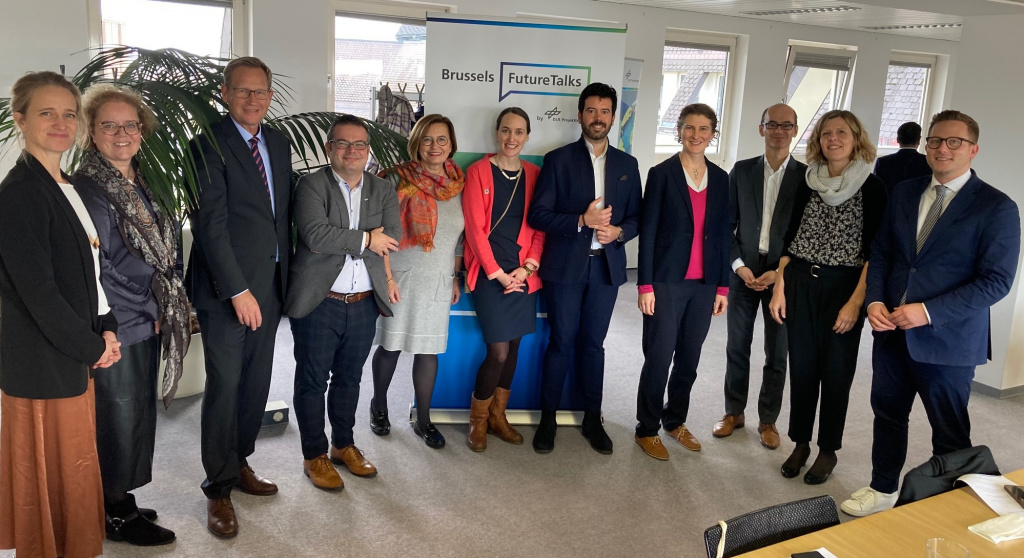
Copyright DLR-PT.
